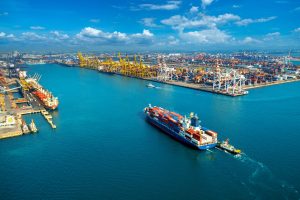Sourcing Beyond Tariffs: How to Protect Your Supply Chain from Trade Disruptions
Introduction
The ongoing shifts in US trade policies, particularly the reintroduction of tariffs under Trump’s administration, have once again placed supply chain resilience at the forefront of business concerns. With increased costs on imported goods, manufacturing companies must explore alternative sourcing strategies to remain competitive.
In this guide, we’ll explore how businesses can navigate tariff uncertainties, identify cost-effective manufacturing alternatives, and build a resilient procurement strategy to stay ahead of the curve.
1. Understanding the Impact of Tariffs on Manufacturing
Recent tariff policies have affected multiple industries, particularly those reliant on imports from:
-
China: Tariffs have been doubled to 20% on various goods, escalating trade tensions. Reuters
-
Mexico and Canada: A 25% tariff has been imposed on imports, with a 10% tariff specifically on energy resources from Canada. whitehouse.gov
-
India: Reciprocal tariffs are set to commence on April 2, targeting sectors where India imposes high tariffs on U.S. goods, such as the 100% tariff on U.S. motorcycles. whitehouse.gov
These measures impact industries including:
-
Electronics & Electrical Equipment
-
Automotive & Aerospace Components
-
Metal Fabrication & Machinery
-
Plastics & Rubber Products
Higher import costs mean manufacturers must either absorb expenses or pass them to customers, both of which hurt competitiveness. Companies that proactively adapt their sourcing strategies will gain a competitive advantage.
2. Exploring Alternative Sourcing Destinations
To reduce dependence on countries affected by new tariffs and minimize tariff-related costs, manufacturers are shifting production to other global regions. Key alternatives include:
🇲🇽 Mexico: Nearshoring for Cost Efficiency
- Lower transportation costs and faster delivery times to the US
- Trade advantages under the USMCA agreement
- Strong capabilities in automotive, aerospace, and electronics manufacturing
Note: While Mexico is currently subject to U.S. tariffs, its strategic advantages may still offer long-term benefits.
🇮🇳 India: Emerging Powerhouse for Industrial Manufacturing
- Competitive labor costs and growing industrial base
- Strengths in metal fabrication, casting, and plastics
- Expanding infrastructure for high-volume production
Note: With upcoming reciprocal tariffs starting April 2, companies should carefully assess the impact on sourcing from India.
🇻🇳 Vietnam & 🇹🇭 Thailand: Agile & Scalable Solutions
- Lower tariffs and competitive pricing in electronics, textiles, and furniture
- Flexible production capacity for small-to-medium batch manufacturing
- Government incentives attracting global manufacturers
3. Key Strategies for Sourcing Beyond Tariffs
- Diversify Your Supplier Base
Avoid reliance on a single country—distribute sourcing across multiple regions to mitigate risks and stabilize costs. - Leverage Nearshoring Benefits
For US companies, Mexico provides a strong alternative for tariff-free production with shorter lead times and logistical advantages. - Negotiate Smart Contracts
Ensure supplier agreements account for potential tariff changes and allow for flexibility in pricing and order volume adjustments. - Invest in Supplier Due Diligence
Perform audits and quality inspections to ensure new suppliers meet compliance and production standards. - Partner with a Global Sourcing Expert
Working with an experienced procurement and supply chain firm like EDS International can help identify the best global suppliers, optimize costs, and manage supplier relationships efficiently.
4. How EDS International Can Help
With over 40 years of expertise in global procurement and supply chain management, EDS International provides:
- A global supplier network across Asia, Eastern Europe, and other strategic regions.
- Supplier evaluation and quality control services.
- Cost analysis and risk mitigation strategies.
- Logistics and supply chain diversification solutions.
🔗 Want a custom sourcing strategy to navigate tariffs?
📞 Schedule a Free Consultation with EDS International
Final Thoughts
Tariffs and trade disruptions will continue to shape the global supply chain landscape. The key to staying competitive is proactive planning and strategic sourcing diversification. Companies that act now will position themselves for long-term success and cost savings.
Need expert guidance on sourcing beyond tariffs? Contact EDS International today to discuss how we can optimize your procurement strategy and protect your supply chain.








